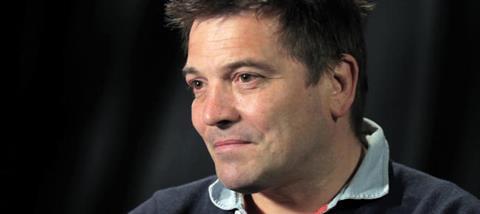
Tell us about life growing up.
I’m called Rico Tice because I was born in Chile and christened Richard, which is Ricardo in Spanish. That got shortened to Rico. I spend my life being called Tico Rice and it sounds like number 42 at the takeaway.
I was sent to boarding school when I was 8 and I’ve just about recovered now. I think it was disastrous. Actually, at one level it was a bit of an abuse. You get cut off from the unconditional love of your parents and put into an environment where you’re loved if you achieve. Very early on I was taught, ‘You’re not good enough. Prove yourself.’
Can you imagine the joy of hearing the gospel when I was 16? I’m not good enough, but Christ died for me. He’s the one who proves himself. Working the gospel into my subconscious has been a lifelong battle for me.
There have been a lot of books written on evangelism. What made you want to write another one?
Many of those books give the impression if you get the formula right, you can keep your friends. But you are going to get marginalised and isolated if you follow Jesus.
The truth is, we’re going to be rejected if we keep saying this. And for the love of people, we need to keep saying this. Where will they be in 100 years’ time? People without Christ go to hell. If these things are true, we’ve got to keep saying them.
Let’s be honest with people as we speak to them about judgement, about Jesus as the only way to God, about God’s high and holy standards for sex. These things are very controversial, and as we say them we can be as charming as we like, but they’re going to cause conflict. But let’s go on risking it, let’s hold to the real gospel, and let’s not change it.
You write about your grandmother who died convinced she would go to heaven because she was a good person. You’re honest in admitting you should have said something. How do you deal with that regret?
That’s the part of my life I’d most like to rewind. I wish I’d taken her hand and prayed with her.
The reason I didn’t speak to her was cowardice. I cared more about what my family would think of me than what Christ would think on judgement day. I’m not saying she’s in hell.
I’m not saying she’s in heaven. I’m not optimistic, but I leave her in God’s hands.
Do you ever have periods of doubt?
My biggest problem is my own sin. It’s the moral thing. It’s when I don’t bother to pray. It’s whether I bother to evangelise. I’m sitting here talking about it, but am I going to invite people on my street to an event we’ve got at All Souls in a couple of weeks’ time?
I don’t really have the doubt thing. I know this to be true. I am convinced the Bible has the answers.
Honest Evangelism: How to talk about Jesus even when it’s tough (The Good Book Company) is available now


























